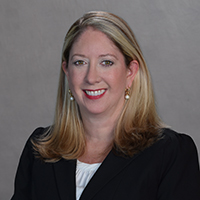Jun 1, 2020 - Events and Seminars by Walton Lantaff
On May 29th, the First District Court of Appeal took action concerning the prominent one-time change provision under F.S. 440 which may have a significant impact on the way Employer/Carrier’s handle said requests.
In City of Bartow and Commercial Risk Management v. Flores, No.1D18-1927 (May 29, 2020), the First DCA reviewed a JCC order finding the Employer/Carrier (E/C) failed to comply with section 440.13(2)(f), Florida Statutes (2015), the “one-time change provision,” and awarding authorization of a claimant-selected alternate physician because the E/C unreasonably delayed scheduling the appointment with the doctor they selected. Perhaps recognizing that this decision conflicts with earlier decisions of the Court, the First District certified to the Florida Supreme Court a question of great public importance:
Whether an E/C’s duty to timely furnish medical treatment under section 440.13(2), which includes a claimant’s right to a one-time change of physician during the course of such treatment pursuant to subsection (2)(f), is fulfilled solely by timely authorizing an alternate physician to treat the claimant or whether-in order to retain its right of selection after timely authorizing the alternate physician to treat the claimant, the E/C must actually provide the claimant an appointment date with the authorized alternate physician?
In City of Bartow, on June 20, 2017 the Claimant made a written request for a one-time change in physician. The following day, the E/C acknowledged the request and advised claimant that a new doctor was authorized, the prior doctor deauthorized and that “[d]etails regarding the appointment will be forthcoming under separate cover.” Multiple e-mails were exchanged between the parties’ counsels inquiring into the status of the appointment with the alternate doctor, resulting in a July 19, 2017 Petition for Benefits requesting a one-time change (per his earlier request) and designating a claimant-chosen alternative doctor. On August 16, 2017, 56 days after the E/C’s receipt of the one-time change request, claimant was advised of an appointment on September 11, 2017 (63 days from the date of request).
The JCC entered an order granting claimant’s request for a one-time change of his choice, finding the E/C did not “provide” an appointment as required by section 440.13(2)(f). The JCC further determined that attempts by the E/C to contact its alternate physician were not initiated until a month following the one-time change request.
On appeal, the First District focused on what satisfies the E/C’s obligations to “provide” an alternate physician under section 440.13(2)(f). The Court found that whether the E/C timely “provides” the alternate physician is a fact-based question determined by the JCC, acknowledging multiple factors (including geographical availability of physicians; office policies of individual physicians; requirements of medical record review by physician before acceptance of new patients; efforts of the carrier; exigency of injured workers’ medical condition; and treatment need) should all be relevant in a JCC’s determination of whether the E/C “failed to provide” the alternate physician.
Ultimately, the First District upheld the JCC’s order in City of Bartow, noting “[i]n keeping with the spirit of section 440.015 to ensure a quick and efficient delivery of disability and medical benefits to an injured worker, the parties are under an implied duty to act reasonably and fairly.” The JCC’s finding, that the E/C unreasonably delayed in providing the alternate physician, was upheld with the First District noting the importance of timely provision of medical treatment. The First DCA held that an E/C that had retained the right of selection by virtue of authorizing an alternate provider within 5 business days could forfeit that right by failing to timely provide an appointment. In an unusual move, the First DCA certified the above-referenced question as one of “great public importance” to the Florida Supreme Court.
Practically speaking, this case serves as a reminder, although difficult, that E/Cs should endeavor to select and authorize an alternate physician, schedule an appointment date with said physician, AND notify the claimant / claimant’s counsel of said appointment within 5 days of receiving a one-time change request whenever possible. Carriers need to escalate one-time change issues and educate nurse case managers who set appointments on the importance of documenting all efforts to schedule appointments and notating any delays that are the result of circumstances beyond the control of the E/C.
It remains to be seen whether the Florida Supreme Court will provide further guidance on what constitutes full compliance by the E/C under this statutory provision. Walton Lantaff will keep you posted as to any further developments regarding this important issue.
Presented (on behalf of the Firm) by:


